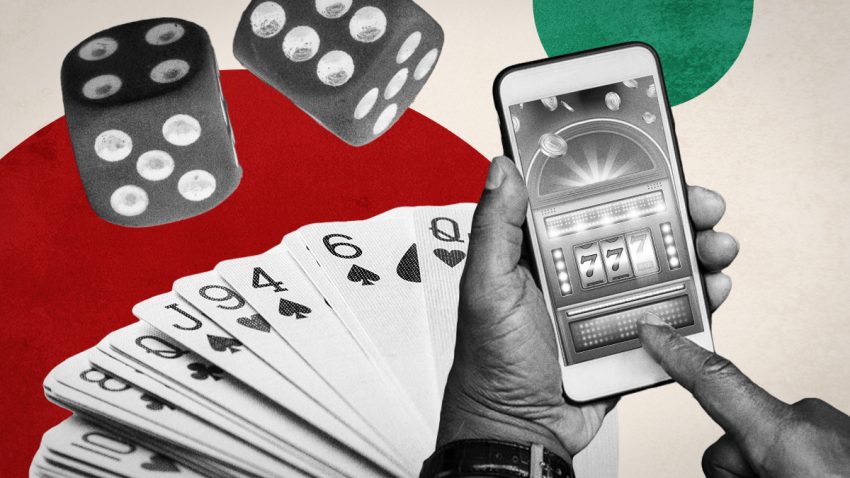South Africa is struggling to crack down on online gambling, with only 39 arrests being made in the past five financial years.
This is according to police minister Senzo Mchunu, who responded to a Parliamentary question from Rise Mzansi leader Songezo Zibi asking about illegal online gambling cases identified by the police.
According to the National Gambling Act of 2004, which outlines rules for legal and illegal forms of gambling, interactive gambling games are unlawful.
It defines interactive games as gambling games that can be played through an electronic agent accessed over the Internet.
Despite being unlawful in South Africa, AskGamblers, a site that aims to “bridge the gap between the iGaming industry and players”, said people in the country have access to over 1,000 online gambling sites.
Mchunu said that 36 illegal online gambling cases were reported to the South African Police Service (Saps), which resulted in 39 arrests.
Only four of these arrests involved the Directorate for Priority Crime Investigation (DPCI), commonly known as the Hawks.
Of the 39 arrests, 20 were made in KwaZulu-Natal and the rest in Gauteng. The Hawks performed thirteen of the arrests made in Gauteng.
However, only 22 arrests resulted in convictions, and the charges against the 13 suspects arrested by the Hawks were withdrawn in court.
“Regarding the cases investigated by the DPCI, the validity of the search warrants was contested in the High Court by the legal representatives of the accused, where seized exhibits are returned to the accused,” Mchunu said.
Nine of the convictions were made in 2020/21, twelve in 2023/24, and one in 2024/25.
The Minister argued that illegal online gambling activities are challenging to identify, given the ease with which these websites can be put up and removed from the Internet.
Therefore, online gambling only comprises 0.1% of the total gambling cases reported, with 32,906 illegal land-based gambling cases reported over the same period.
While asked about his department’s plans to improve online gambling identification and investigation, Mchunu only mentioned what Saps is doing to crack down on the greater gambling industry.
“There has been a collaboration with other government departments as well as the National Gambling Board (NGB) to enhance the regulations of the gambling industry,” he said.
| Provinces | Reports 2020/21 – 2024/25 | Arrests 2020/21 – 2024/25 | Convictions 2020/21 – 2024/25 |
|---|---|---|---|
| Eastern Cape | 0 | 0 | 0 |
| Free State | 4 | 0 | 0 |
| Gauteng | 11 | 19 | 9 |
| KwaZulu-Natal | 21 | 20 | 13 |
| Limpopo | 0 | 0 | 0 |
| Mpumalanga | 0 | 0 | 0 |
| North West | 0 | 0 | 0 |
| Northern Cape | 0 | 0 | 0 |
| Western Cape | 0 | 0 | 0 |
| Total | 36 | 39 | 22 |
Attempts to regulate online gambling

In January, Trade, Industry, and Competition Minister Parks Tau outlined government initiatives to crack down on online gambling in the country.
“The department is aware of the growing challenge of illegal online gambling in South Africa,” the Minister said.
“There is also a challenge of illegal sports betting activities identified, wherein bookmakers are offering online gambling illegally.
The Minister noted that the National Gambling Board is working closely with law enforcement agencies to combat illegal gambling in South Africa.
However, the issue of regulating online gambling could have been simplified had South Africa implemented the necessary legislation.
In 2008, then-President Thabo Mbeki assented to the National Gambling Amendment Act.
The amendments in the bill provide the necessary regulations for interactive gambling facilities, but it was never brought into operation.
Parliament has made multiple attempts to seek clarity and better regulate online gambling in South Africa, even though no president has implemented the Amendment Act.
The most recent attempt was by the DA, which proposed the Remote Gambling Bill a month before South Africa’s general election in 2024.
The bill aimed to regulate online gambling advertising and protect children and vulnerable persons.
The bill, which took two years to compile, according to DA MP Dean MacPherson, now serving as the Minister of Public Works, also proposed that gambling licences be issued by relevant provincial authorities rather than the National Gambling Board.
“It is highly concerning given the massive strides and advances online usage has increased and grown since 2008,” MacPherson said.
“By not regulating this gambling activity, the erosion of the rule of law and criminal activity is being encouraged, while the public is not effectively protected as they are when using land-based gaming operations.”
A similar bill was proposed in 2015 by Cape Town’s current mayor, Geordin Hill-Lewis, but did not progress due to a lack of support.

